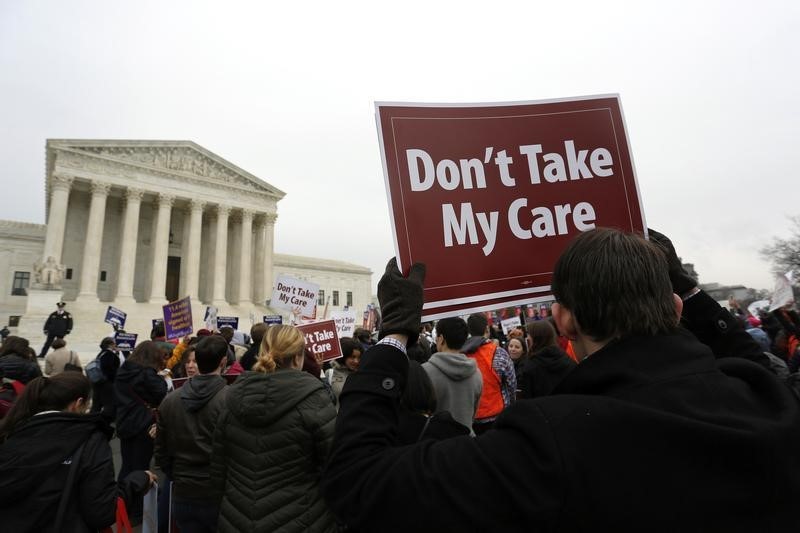By David Lawder
WASHINGTON (Reuters) - After five years of failed attempts, U.S. Senate Republicans on Thursday passed a symbolic partisan bill to gut President Barack Obama's signature healthcare reform law, but the effort has already been condemned to death by Obama's plans to veto it.
The Republican-controlled Senate voted 52-47 to repeal several core Obamacare provisions under special budget procedural rules that allow for passage with a simple majority.
Two moderate Republican senators, Mark Kirk of Illinois and Susan Collins of Maine, joined 44 Democrats and one independent in opposing the measure. Independent Senator Bernie Sanders, of Vermont, who is seeking the Democratic presidential nomination, did not vote.
Democrats in the Senate have blocked some 61 previous Republican attempts aimed at rolling back the landmark 2010 legislation designed to provide health care for millions of uninsured Americans.
The bill seeks to phase out a major expansion of Medicaid healthcare benefits for the poor under the law and eliminate health insurance subsidies and taxes on medical devices and high-cost plans offered by employers.
It also seeks to deny funding to women's healthcare provider Planned Parenthood, which Republicans have been trying to punish for months over accusations that it illegally sold tissue from aborted fetuses. The group denies the allegations.
The vote gives Republicans their first real chance of putting an Obamacare repeal bill onto the president's desk, which would allow them to make campaign claims that they finally passed legislation to kill the program.
Senate Budget Committee Chairman Mike Enzi said in debate that Obamacare was "unworkable, unaffordable and more unpopular than ever. For millions of Americans the law today represents nothing more than broken promises, higher costs and fewer choices."
Republicans lack the two-thirds majority needed to override the promised veto by Obama.
The legislation still needs a vote in the House of Representatives, as it differs from a House version passed in October that concentrated on repealing the law's mandates for individuals to buy health insurance and for larger companies to offer health plans to employees.
House Majority Leader Kevin McCarthy, asked if the chamber would simply take up the Senate bill, said: "Why wouldn't we?"

The vote comes at a time when some plans sold via Obamacare insurance exchanges have been struggling with weak enrollment, higher-than-expected medical costs and increased premiums.